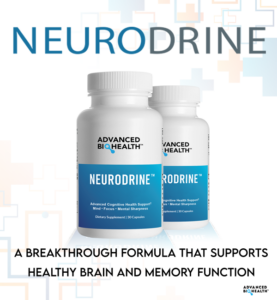What is phosphatidylserine and how can it help with memory problems?

Phosphatidylserine is a phospholipid that is found in high concentrations in the brain. It plays an important role in cell signaling, and has been shown to be effective in treating Alzheimer’s disease and other forms of dementia.
What is phosphatidylserine?
Phosphatidylserine is a type of phospholipid that is found in cell membranes. It is involved in various cellular processes, including cell proliferation, cell death, and cell signaling. Phosphatidylserine is also a precursor for sphingolipids, which are important components of cell membranes.
Phosphatidylserine is thought to be beneficial for cognitive function and memory, as it plays a role in neuronal communication. Research has shown that Phosphatidylserine supplements can improve memory and cognitive function in healthy adults and in those with Alzheimer’s disease and other forms of dementia.
Phosphatidylserine supplements are generally well-tolerated, but some people may experience side effects such as gastrointestinal upset, headache, or insomnia. If you are considering taking a Phosphatidylserine supplement, be sure to talk to your healthcare provider first to ensure it is safe for you.
What are the benefits of taking phosphatidylserine supplements?
Phosphatidylserine supplements have been shown to improve memory, cognitive function and attention span in healthy adults as well as those with Alzheimer’s disease, dementia, age-related cognitive decline and other memory problems.
Phosphatidylserine supplements help to maintain the structure and function of brain cells, protect against free radical damage and support the production of acetylcholine – a neurotransmitter involved in learning and memory.
If you are experiencing memory problems or notice a decline in your cognitive function, taking a phosphatidylserine supplement may help to improve your symptoms.
Who should take phosphatidylserine supplements?
If you’re struggling with memory problems, phosphatidylserine supplements could be a helpful solution. Phosphatidylserine is a substance that’s found naturally in the brain, and it’s thought to play a role in cognitive function. Supplementing with this nutrient may help to improve memory and prevent age-related decline in cognitive function.
Who should take phosphatidylserine supplements? Anyone who wants to improve their memory or cognitive function may benefit from taking these supplements. If you’re concerned about age-related decline in cognitive function, phosphatidylserine may help to protect your brain health. Older adults, in particular, may find that these supplements improve their memory and cognitive function. Always check with your doctor before trying new supplements or herbs.
How much phosphatidylserine should be taken per day?
There is no one-size-fits-all answer to this question, as the correct dosage of phosphatidylserine will vary depending on the individual’s age, weight, and health condition. However, a common starting dose is 100 mg per day. If you are unsure about how much to take, it is always best to speak with a healthcare professional before starting any supplement regimen.
Are there any side effects associated with taking phosphatidylserine supplements?
Taking phosphatidylserine supplements is generally considered to be safe, with few side effects reported. The most common side effect is gastrointestinal upset, including nausea, diarrhea, and bloating. Some people may also experience headache or dizziness. If you experience any adverse effects after taking phosphatidylserine supplements, stop taking them and consult your healthcare provider.
Conclusion
If you’re struggling with memory problems, phosphatidylserine might be a supplement worth considering. Phosphatidylserine is a natural compound that helps to keep cell membranes healthy, and it’s been shown to improve memory in people with dementia and Alzheimer’s disease. It’s also thought to help with age-related memory decline, so it could be helpful for anyone who wants to protect their cognitive health as they age.






